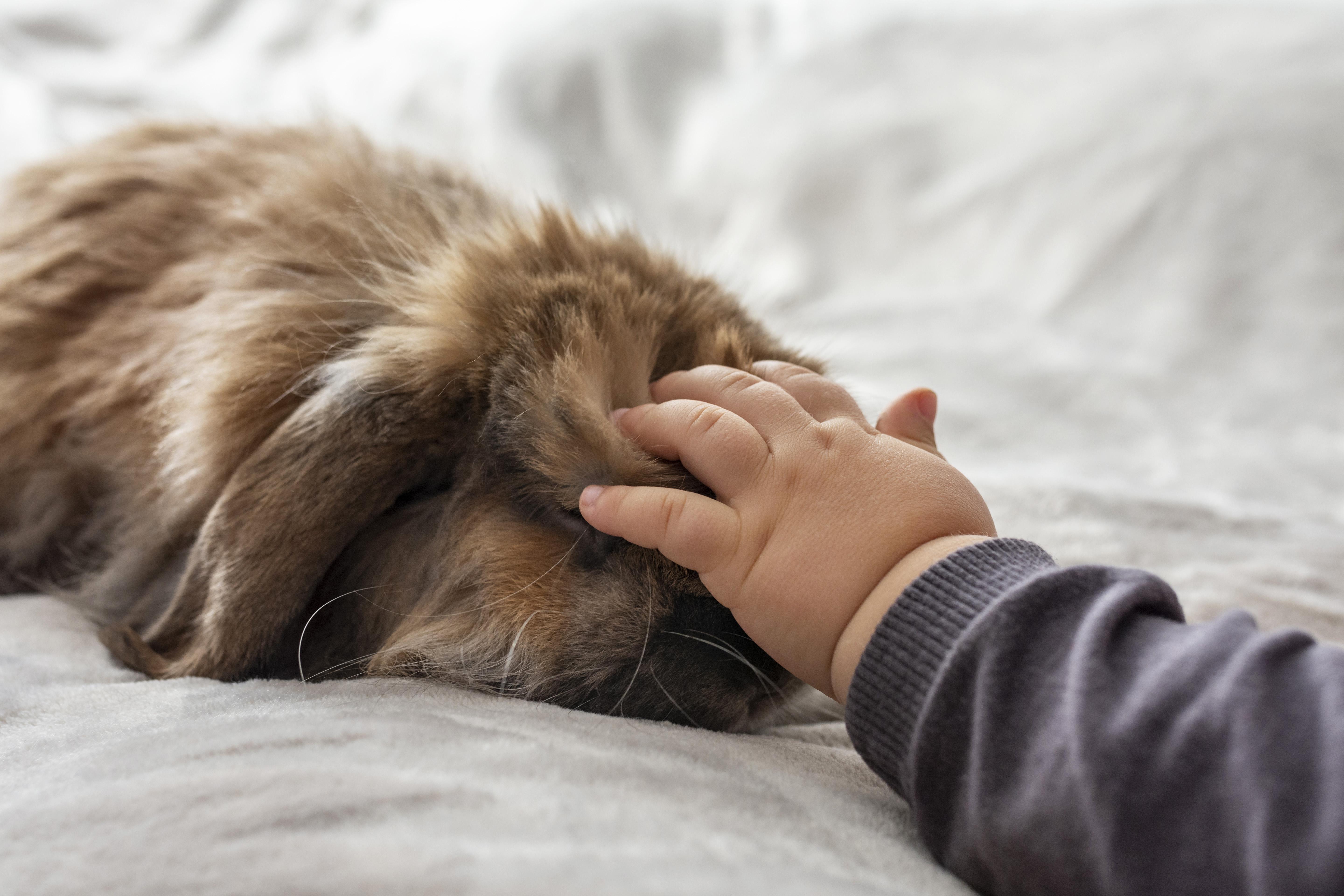Blog » The Role of Pets in Healing from Grief

Grief can be one of life’s most painful experiences, often leaving people feeling isolated and overwhelmed. During these moments, pets provide unique comfort and play a key role in healing by offering companionship and emotional stability. Friends and family may be essential pillars of support, yet the constant, nonjudgmental presence of a pet offers solace that words cannot match. Pets can fill the empty spaces in our hearts, encouraging us to move forward after loss. As we look at the ways pets aid emotional resilience, their role in mental and physical well-being becomes even clearer. Whether it’s the wag of a tail or a gentle purr, pets offer companionship that can make all the difference.
Understanding Grief and the Need for Support
Grieving is a deeply personal process that affects people in many ways, often bringing waves of sadness, loneliness, and even physical exhaustion. Finding dependable support becomes crucial during this time. While people naturally seek out comforting companions, human relationships may sometimes fall short of meeting these needs. Here, pets step in with their steady, calming presence, offering comfort without requiring conversation or explanation.
Pets provide support in grief through several unique ways:
- Nonjudgmental companionship: Pets do not question emotions or actions, creating a safe space for grief.
- Physical closeness: Pets often stay near their owners, giving a grounding and tactile comfort.
- Predictable presence: Pets have reliable behaviors and routines, creating stability when life feels chaotic.
- Unconditional love: Unlike many human relationships, pets love without conditions, providing pure, lasting support.
With their quiet, reassuring support, pets become an invaluable source of comfort during times of sorrow.
The Role of Pets in Healing from Grief
Pets contribute significantly to healing from grief by offering constant companionship and encouraging daily responsibilities. This dual role helps to lift spirits and fosters a sense of purpose. Unlike humans, pets remain steady companions, bringing comfort without words. The ways pets aid emotional healing are evident in several areas:
- Promoting emotional resilience: Spending time with pets reduces stress and anxiety, boosting emotional strength over time.
- Providing daily purpose: Caring for a pet adds structure to each day, which is helpful when other routines feel disrupted.
- Encouraging focus: Attending to a pet’s needs shifts attention to the present, preventing someone from feeling lost in sorrow.
- Offering reliable companionship: Pets provide constant companionship, giving a secure emotional anchor.
Through these small yet impactful acts, pets foster a supportive environment that helps individuals move forward with their grief.
The Emotional Comfort Pets Offer
Pets play a significant role in comforting those who grieve. During times of loss, people may feel isolated and unsupported. Pets offer unconditional love that helps alleviate loneliness, providing individuals a safe outlet for their emotions. The bond between pets and their owners becomes an essential part of coping with grief, helping individuals heal in ways that friends and family may not.
Here’s how pets offer emotional support to those in grief:
- Physical closeness: Petting or holding a pet releases endorphins, creating a calming effect.
- Reducing loneliness: The presence of a pet prevents feelings of isolation, especially during solitary moments.
- Encouraging routine: Walking or playing with pets promotes regular activity, which lifts the mood and encourages healing.
- Expressing affection: Pets respond to their owners’ emotions, providing a loving bond that becomes especially comforting.
In these subtle yet powerful ways, pets offer grieving individuals the chance to express their emotions and begin the healing process.
Pets and Physical Well-being
Pets positively impact physical health, which is essential when healing from grief. Grieving often causes physical and emotional declines, making regular physical activity and good health habits critical. Pets provide natural support for these habits, encouraging people to stay active and reducing stress through physical interaction.
Key benefits for physical health include:
- Increased activity levels: Regular walks or playtime with pets elevate mood and boost energy.
- Lower stress: Petting or grooming pets reduces cortisol levels, lowering stress.
- Improved heart health: Research shows that pet ownership can support cardiovascular health by reducing blood pressure.
- Strengthened immune response: Consistent interaction with pets has been shown to improve immune function.
- Better sleep quality: The security of a pet’s presence can lead to more restful sleep.
Pets help people care for both their physical and emotional well-being, easing the challenges of grief and promoting health.
Creating a Sense of Routine and Normalcy
One of the most impactful roles pets play is helping to re-establish routine and normalcy, which becomes grounding when life feels disrupted. Routine offers stability, providing a structure that helps balance emotional turmoil. Pets offer a reason to wake up each day, go for a walk, and engage in daily caregiving, which can help grieving individuals find moments of normalcy.
Benefits of a pet-based routine include:
- Improving time management: Pets have specific care schedules, which help reintroduce structure to each day.
- Encouraging responsibility: Caring for a pet allows people to focus on something outside their grief.
- Promoting social interaction: Walking pets may lead to conversations with others, helping prevent isolation.
- Fostering self-discipline: The commitment to a pet builds routine and responsibility, encouraging a sense of accomplishment.
- Supporting mindfulness: Pets help their owners live in the present, reducing the weight of grief.
A pet provides an everyday reminder that life continues, offering a sense of purpose amid loss.
Stories of Healing with Pets
Stories of people finding healing through pets highlight the profound impact animals have during grief. A widow who adopted a rescue dog, for instance, found that daily walks helped her rediscover purpose. Similarly, a young person who lost a sibling found solace in caring for a cat, who became a faithful companion during tough times.
Such stories show that pets don’t just fill empty spaces; they become genuine connections that pull people out of grief. Pets allow grieving individuals to feel grounded, creating moments of happiness that encourage them to move forward.
Choosing the Right Pet for Emotional Support
Choosing a pet that fits a person’s lifestyle is important when using a pet for emotional support. Not all pets provide the same comfort, so carefully considering needs and living conditions is essential. Here’s what to keep in mind when selecting a pet for companionship:
- Personality compatibility: Some may prefer calm, low-maintenance pets, while others thrive with active animals.
- Lifestyle fit: Busy people might do well with independent pets like cats, while outdoor enthusiasts may prefer dogs.
- Allergies: Hypoallergenic breeds suit those sensitive to pet dander.
- Space requirements: Apartment dwellers may benefit from smaller pets, while larger pets may need more room.
- Emotional needs: People who want calm companionship might choose birds or fish for their peaceful presence.
Making a thoughtful choice ensures the pet will provide the best possible support during the grieving process.
Long-Term Benefits of Pets After Loss
While pets bring immediate comfort during grief, their companionship offers support long after. As grief subsides, pets continue to bring happiness, purpose, and love to daily life, making them invaluable over the long term.
Key long-term benefits of pet ownership include:
- Greater resilience: A pet’s companionship builds resilience that supports facing future challenges.
- Ongoing joy: Pets provide laughter and companionship, creating new memories and reducing stress.
- Stronger social bonds: Many pet owners connect with others through shared activities or experiences.
- Stable companionship: Pets remain a reliable source of love, offering emotional stability even after grief fades.
Pets become lifelong friends who continue to provide comfort, companionship, and joy long after the initial pain of loss.
Conclusion
Healing from grief is a challenging journey, yet the companionship of a pet can offer a powerful form of support. Pets provide love, physical activity, emotional stability, and daily routines that help people through the hardest times. They bring a reminder that life goes on, offering comfort that’s sometimes hard to find elsewhere. For those facing the depths of grief, a pet may provide the companionship and support they need to start moving forward again. With every small moment of joy and companionship, pets truly make a difference in the healing process.
Recent Blog Posts
- The Heart Behind Every Word: Why Our Families’ Stories Mean So Much
- Affordable Cremation, Meaningful Goodbyes: How to Honor Life Without Financial Strain
- More Than Mourning: A Tribute to a Life Well Lived
- Go figure! Instagram and Facebook for Cremation Services
- The History of Cremation: From Ancient Rituals to Modern Choices
- What to Do When a Loved One Passes Away at Home
- Ashes in Pop Culture: How Cremation is Portrayed in Movies & TV
- Healing Through Green: How Plants Support Mental Health and the Grieving Process
- Eco-Friendly Cremation and Burial Options
- Direct Cremation in South Carolina and Why Families Prefer This Option
